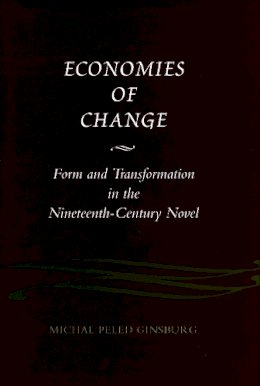
Stock image for illustration purposes only - book cover, edition or condition may vary.
Economies of Change
Michal Peled Ginsburg
€ 92.94
FREE Delivery in Ireland
Description for Economies of Change
Hardback. In detailed readings of ten novels (by Balzac, Stendhal, Austen, Dickens, and James), the author shows how novelists, in their practice of novelistic representation, deal with certain cultural issues, social values, and ideological purposes through the particular combination and manipulation of a set of formal possibilities. Num Pages: 268 pages. BIC Classification: 3JH; DSBF; DSK. Category: (P) Professional & Vocational; (UP) Postgraduate, Research & Scholarly; (UU) Undergraduate. Dimension: 5817 x 3887 x 23. .
This book argues against the tendency of much of literary studies today to mistake the critique of formalism for a license to disregard form altogether. In detailed readings of ten novels (by Balzac, Stendhal, Austen, Dickens, and James), the author shows how novelists, in their practice of novelistic representation, deal with certain cultural issues, social values, and ideological purposes through the particular combination and manipulation of a set of formal possibilities.
The analysis of each novel centers around the notion of transformation—or the “economy of change”—as it informs the text and our understanding of it, arguing that transformation is not ... Read more
Show LessProduct Details
Format
Hardback
Publication date
1996
Publisher
Stanford University Press United States
Number of pages
268
Condition
New
Number of Pages
268
Place of Publication
Palo Alto, United States
ISBN
9780804726115
SKU
V9780804726115
Shipping Time
Usually ships in 15 to 20 working days
Ref
99-15
About Michal Peled Ginsburg
Michal Peled Ginsburg is Associate Professor of French and Comparative Literature at Northwestern University. She is the author of Flaubert Writing: A Study in Narrative Strategies.
Reviews for Economies of Change
“Fascinating, provocative, and stimulating. . . . A significant contribution to discussions of narrative theory and practice, and through them, to our understanding of the relation of literature, history, and society.”—Samuel Weber, University of California, Los Angeles “In this important book, Ginsburg makes a timely intervention into the critical scene with a fresh reminder that neither cultural critique nor literary ... Read more
